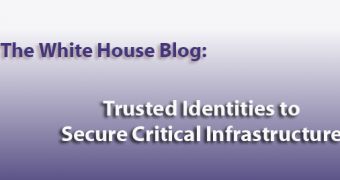In a post published on Monday on the White House blog, Special Assistant to the President and the Cybersecurity Coordinator, Michael Daniel, highlighted the links between two of the United States’ cybersecurity initiatives: the National Strategy for Trusted Identities in Cyberspace (NISTIC) and the Cybersecurity Framework developed by NIST.
Daniel points to the recent Adobe breach, which has forced a large number of people to change their passwords, especially if the same ones have been used on multiple websites.
Since passwords no longer offer the much needed security, NSTIC aims at creating an Identity Ecosystem that will address this issue.
“What this means for individual users is that they will be able to choose from a variety of more secure, privacy-enhancing identity solutions that they can use in lieu of passwords for safer, more convenient experiences everywhere they go online,” Daniel noted.
The initiative is believed to be useful for multiple sectors because trusted identities can provide not only enhanced security and improved privacy, but also new types of transactions, better customer service, and reduced costs.
The Cybersecurity Framework, on the other hand, focuses on the protection of critical infrastructure, on which the US’s national and economic security depends.
So what’s the connection between these two initiatives? According to the cybersecurity coordinator, “NSTIC complements the goals and objectives of President Obama’s Executive Order by promoting the use of trusted identity solutions in lieu of passwords, which will help strengthen the cybersecurity of critical infrastructure.”
He added, “Trusted identities offer owners and operators of critical infrastructure more secure, privacy-enhancing, and easy-to-use solutions to help secure IT systems from potential attack.”
In late October, NIST published a preliminary version of the Cybersecurity Framework, urging all stakeholders to provide feedback. Comments can be submitted until December 13, 5PM EST.

 14 DAY TRIAL //
14 DAY TRIAL //